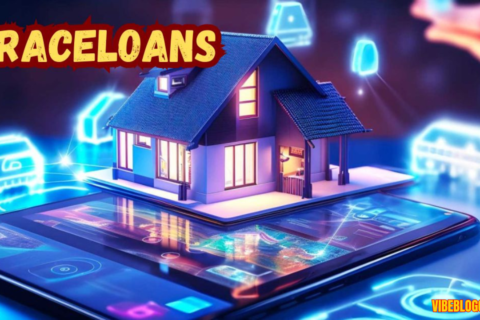Introduction
GitHub.io games refer to a collection of interactive web-based games hosted on GitHub Pages, utilizing the platform’s capabilities for developers to showcase their projects. These games often include various genres such as puzzle, racing, and multiplayer experiences, allowing users to play directly in their web browsers without the need for downloads. Many of these games are open-source, enabling developers to contribute and modify them, fostering a collaborative environment for learning and creativity. This makes GitHub.io an accessible platform for both gamers and developers to explore innovative game designs and engage with a community of enthusiasts.
What Are GitHub.io Games?
GitHub.io games refer to games hosted on GitHub Pages, a free hosting service provided by GitHub. This service allows developers to publish websites directly from their GitHub repositories. Many developers use it to share their projects with the world, including simple, playable games. These games often range from small, single-player projects to more complex multiplayer experiences, making GitHub.io a hidden treasure trove for gamers who love indie projects.
The games hosted on GitHub.io typically feature HTML5, CSS, and JavaScript as core technologies. The open-source nature of GitHub enables developers to share their game’s source code, making it an excellent platform for collaboration and learning in the gaming community.
The Rise of GitHub.io Games
The popularity of GitHub.io games has been fueled by several factors, particularly the ease with which developers can publish and share their creations. Below are a few reasons why GitHub.io games have risen to prominence.
1. Accessibility
Because the games exist as open-source projects, they are often accessible directly through a web browser. Players do not need to download or install anything, eliminating the barriers that often exist with other online games.
2. Open-Source Collaboration
GitHub fosters a community-driven environment. Developers from across the globe can contribute to projects, improve existing games, and even fork repositories to create their versions. This collaborative spirit promotes innovation, resulting in unique and exciting games.
3. Educational Opportunities
For beginner coders and aspiring game developers, GitHub.io games offer a valuable learning resource. Developers can easily access and review the code behind these games, gaining insights into game development, web technologies, and programming best practices.
4. Variety and Creativity
GitHub.io games come in all shapes and sizes. Whether you enjoy simple arcade games, puzzles, or more sophisticated strategy games, the platform offers something for everyone. The creativity of independent developers knows no bounds, and GitHub.io games exemplify this spirit.
How Developers Create Games on GitHub.io
Creating a game on GitHub.io is a straightforward process for developers familiar with web development. Here’s a breakdown of the steps developers follow to create and share their games:
1. Develop the Game Using HTML5, CSS, and JavaScript
The majority of GitHub.io games are web-based, which means developers rely on web technologies like HTML5, CSS, and JavaScript to build them. HTML5 is ideal for structuring content, while CSS handles the design, and JavaScript adds interactivity and game mechanics.
2. Upload the Game to GitHub
Once the game is complete, developers push their code to a GitHub repository. They organize the code into relevant folders, such as index.html, CSS stylesheets, and JavaScript files. This repository becomes the foundation for the game’s online hosting.
3. Publish the Game on GitHub Pages
GitHub Pages is GitHub’s web hosting service. After uploading the game’s code to a repository, developers can quickly publish the game online by enabling GitHub Pages within the repository settings. The result is a live website hosted under the github.io domain, where players can access the game.
4. Share and Collaborate
With the game live, developers can now share the game link with others. They can also encourage collaboration by opening their repositories for contributions. This is one of the unique aspects of GitHub.io games, as other developers or players can contribute to fixing bugs, adding new features, or even creating spin-offs.
Advantages of Playing GitHub.io Games
Playing GitHub.io games offers several benefits, both for casual gamers and tech enthusiasts. Here are some key reasons why many players turn to these browser-based games:
1. Free-to-Play
Unlike many commercial games that require purchases or subscriptions, GitHub.io games are usually free. Since they are open-source projects, developers rarely charge for access, allowing players to enjoy them without spending a dime.
2. No Installation Required
All GitHub.io games run directly in the browser. This means no software installation, no app downloads, and no cumbersome setups. You can start playing instantly by simply visiting the game’s GitHub Pages link.
3. Accessible Across Devices
GitHub.io games are typically designed to be responsive and work across various devices, including desktops, laptops, tablets, and even mobile phones. This allows gamers to play on any platform with internet access.
4. Engaging Indie Titles
Independent developers bring their unique creativity to GitHub.io games. Unlike large gaming companies, which often prioritize profit, these developers experiment with different gameplay mechanics, art styles, and genres. As a result, GitHub.io games often offer refreshing and unique experiences that mainstream games may lack.
Popular GitHub.io Games You Should Try
GitHub hosts thousands of games, but certain titles stand out due to their creativity, design, and gameplay. Below are some popular GitHub.io games that have captivated players.
1. 2048
Originally created by Gabriele Cirulli, 2048 is an addicting puzzle game where players slide numbered tiles on a grid to combine them and create a tile with the number 2048. It became incredibly popular shortly after its release and remains a favorite among casual gamers. Cirulli uploaded the source code on GitHub, inspiring countless clones and variations of the game.
2. Hextris
Inspired by Tetris, Hextris brings a new twist to the classic block-stacking game. Players must rotate a hexagonal grid while blocks of different colors fall toward it. The goal is to match colors before the blocks reach the center of the hexagon. This challenging puzzle game showcases the creativity developers bring to the GitHub.io platform.
3. Astray
For those who love adventure games, Astray offers a unique experience. It is a first-person puzzle game that challenges players to navigate a mysterious maze filled with obstacles and riddles. Built using JavaScript and WebGL, Astray demonstrates how developers can push the limits of browser-based gaming.
4. Doodle Jump Clone
Developed as a clone of the popular mobile game Doodle Jump, this GitHub.io game mimics the original’s simple yet addictive jumping mechanics. Players control a character as it jumps from platform to platform, avoiding obstacles and trying to reach new heights.
5. Flappy Bird Clone
After the viral success of Flappy Bird, many developers sought to recreate the game using their own code. GitHub.io hosts several Flappy Bird clones, allowing players to experience the endless runner gameplay of the original game. These clones showcase the versatility of JavaScript and web-based gaming.
Learning from GitHub.io Games: A Resource for Developers
Beyond providing entertainment, GitHub.io games also serve as valuable learning tools for aspiring developers. Developers can explore how games work under the hood by viewing and analyzing the source code, which fosters understanding in areas such as:
1. Game Logic and Mechanics
Examining how developers create game logic, such as movement, physics, and scoring systems, allows new developers to learn by example. This insight proves especially helpful for those learning JavaScript.
2. User Interface Design
Many GitHub.io games feature unique and creative user interfaces. By reviewing the HTML and CSS used in these games, developers can gain a better understanding of web design principles.
3. Problem Solving and Debugging
GitHub’s collaborative environment allows developers to see how others tackle challenges such as performance optimization, bug fixes, and feature updates. The open nature of Git Hub.io games encourages peer-to-peer learning, where developers offer feedback and suggest improvements.
The Future of Git Hub.io Games
As technology continues to evolve, Git Hub.io games will likely play an even more prominent role in the online gaming community. Several factors suggest a bright future for these games:
1. Increased Popularity of HTML5
HTML5, the backbone of most GitHub.io games, continues to rise in popularity. As more developers embrace this technology, the possibilities for creating advanced, feature-rich games will expand.
2. Expanding Developer Community
GitHub boasts one of the largest communities of developers in the world. With more developers joining the platform each day, the number of GitHub.io games will increase, creating an even more diverse and vibrant ecosystem of web-based games.
3. Potential for Monetization
Although most GitHub.io games are free, developers may explore new models for monetization, such as optional donations or premium features. This could provide an incentive for more developers to invest their time in creating high-quality games.
4. Integration with Emerging Technologies
As technologies like WebAssembly, WebXR, and WebGL become more sophisticated, GitHub.io games will be able to incorporate more immersive elements such as virtual reality and 3D graphics. This could lead to a new generation of web-based games that rival traditional desktop and console games in terms of complexity and immersion.
Conclusion
Git Hub.io games represent a thriving space in the world of online gaming, showcasing the creativity and innovation of independent developers. From puzzle games to action-packed adventures, GitHub.io offers something for everyone. Not only do these games provide entertainment, but they also serve as valuable learning tools for developers. Whether you’re a gamer or a budding developer, GitHub.io games offer endless possibilities for fun, exploration, and collaboration.
Also Read: Viprow.us.com: The Ultimate Guide to Free Sports Streaming
FAQs
What are Git Hub.io games?
Git Hub.io games are web-based games hosted on GitHub Pages. Developers use the platform to share open-source games built with HTML5, CSS, and JavaScript.
Can I play Git Hub.io games for free?
Yes, GitHub.io games are typically free to play. They are open-source projects, and players can access them directly in their web browsers.
What are some popular GitHub.io games?
Popular games include 2048, Hextris, Astray, and clones of Flappy Bird and Doodle Jump.
Do GitHub.io games work on mobile devices?
Most GitHub.io games are designed to be responsive, meaning they can be played on mobile devices, tablets, and desktops.
Can I create my own game on GitHub.io?
Yes, any developer familiar with HTML5, CSS, and JavaScript can create and host their own game on GitHub Pages.
Is the source code of GitHub.io games accessible?
Yes, GitHub.io games are open-source, meaning the source code is available to the public for review, modification, and contribution.






